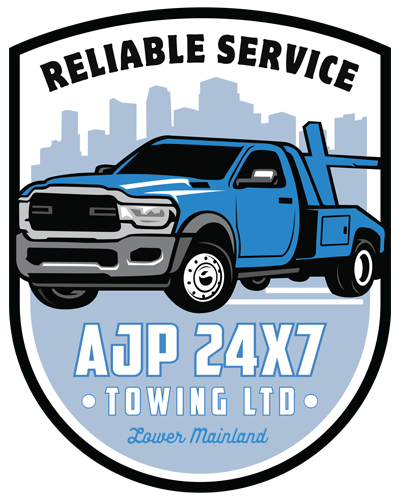For many, the mere thought of a tow truck conjures images of rescue and reliability. When your car is stranded on the road, a tow truck can be a saving grace. Unfortunately, there’s a darker side to the towing industry that’s often overlooked until a sudden bill surprises a stranded driver.
Towing scams are, unfortunately, a reality that many drivers face. What seems like a simple tow can sometimes turn into an expensive nightmare. But, knowledge is power, and there are proactive steps every car owner can take to outsmart these scams. This detailed guide aims to arm you with the information you need to avoid such traps and ensure that when a tow truck arrives, your wallet won’t take a beating.
The Anatomy of a Towing Scam
Understanding how towing scams operate is the first step toward avoiding them. There are several common tactics used by unscrupulous operators to exploit drivers in need:
Overcharging and Hidden Fees
After arriving on the scene, a less-than-reputable tow truck driver may inflate the cost of the tow, tacking on fees for mileage, “after-hours” service, or even administrative costs that were never mentioned.
Unauthorized Towing
Some tow companies actively monitor popular parking zones for vehicles to tow. The driver returns to find their car gone, with the tow company demanding exorbitant fees often in cash.
Corrupt Spotters
Spotters pay parking lot owners for the opportunity to tow cars, encouraging them to call in tows aggressively. These spotters are often incentivized by tow companies for every car they report.
Bait and Switch
You might call for a tow from a reputable company and receive service from a different, possibly unlicensed, and uninsured operator.
Holding Cars Hostage
A particularly sinister tactics involves moving the vehicle to a storage yard and refusing to release it until the inflated fees are paid.
Your Defense Against Towing Scams
Arming yourself with knowledge and taking certain precautions can significantly reduce the chances of falling victim to predatory towing practices.
Be Proactive
Before you’re in a situation where you need a tow, research and make a list of reputable tow companies in your area. Know their rates and any additional charges. Having this information readily available will save you time and stress when you’re in a bind.
Know Your Rights
Familiarize yourself with local parking and towing laws. For instance, in many jurisdictions, tow truck drivers must provide a clear breakdown of fees and reasons for the tow. They should also accept major credit cards as payment.
Document Everything
Take photos of your car’s condition, the towing truck, and the driver. Record the time and location of the tow. This evidence can be crucial if you need to dispute charges or report fraudulent behavior.
Ask Questions
When the tow truck arrives, don’t rush the process. Ask for identification, the company’s name, proof of insurance, and the driver’s certification. Request a written estimate of the cost before any work begins.
Stay Informed
Keep an eye on news reports and community forums for any towing scams or rogue operators in your area. This sort of awareness can save you from a lot of headaches down the line.
Avoid Cash Transactions
Whenever possible, pay with a credit card. This creates a paper trail and offers you some recourse if things don’t go as planned.
Handling a Towing Situation
In the event that your vehicle needs to be towed, keeping a level head is as important as knowing your rights. Here’s a step-by-step approach to the towing process:
Assess the Situation
Ensure you’re in a safe location. If your car is operable and you can safely leave the area, consider doing so to avoid unnecessary towing.
Contact Your Preferred Towing Company
Call the tow company you’ve previously researched and feel comfortable with. Provide them your location, a description of your vehicle, and any other necessary details.
Supervise the Tow
If possible, accompany your vehicle to its destination. If not, request photos of your car’s condition before it is towed and after it reaches the storage yard.
Review the Bill
When the transaction is complete, carefully review the bill. Ensure it matches the previously agreed-upon estimate and includes all the necessary information, including reasons for the tow.
What to Do After a Towing Scam
If you believe you’ve been a victim of a towing scam, don’t panic. There are steps you can take to rectify the situation:
Review Local Laws
Report the incident to local authorities tasked with overseeing the towing industry. They can guide you on the appropriate legal actions to take.
File a Complaint
Register a formal complaint against the tow company with the Better Business Bureau or similar consumer protection agency.
Seek Legal Recourse
If the situation warrants, consider seeking legal advice. A qualified attorney can help you understand your options and the next steps.
Share Your Experience
Warn others of the scam by posting your experience on review sites, social media, or local community forums. Your story may prevent others from falling into the same trap.
Conclusion
The towing industry, like many others, has its share of bad actors. But with the right preparation and knowledge, you can minimize the risk of falling victim to their scams. By educating yourself on common tactics, understanding your rights, and taking decisive action, you can ensure that when you’re towed, only your car moves, not your bank account. Precaution is key, and while no one wants to plan for the worst, being prepared can make all the difference when it comes to staying safe on the road.

